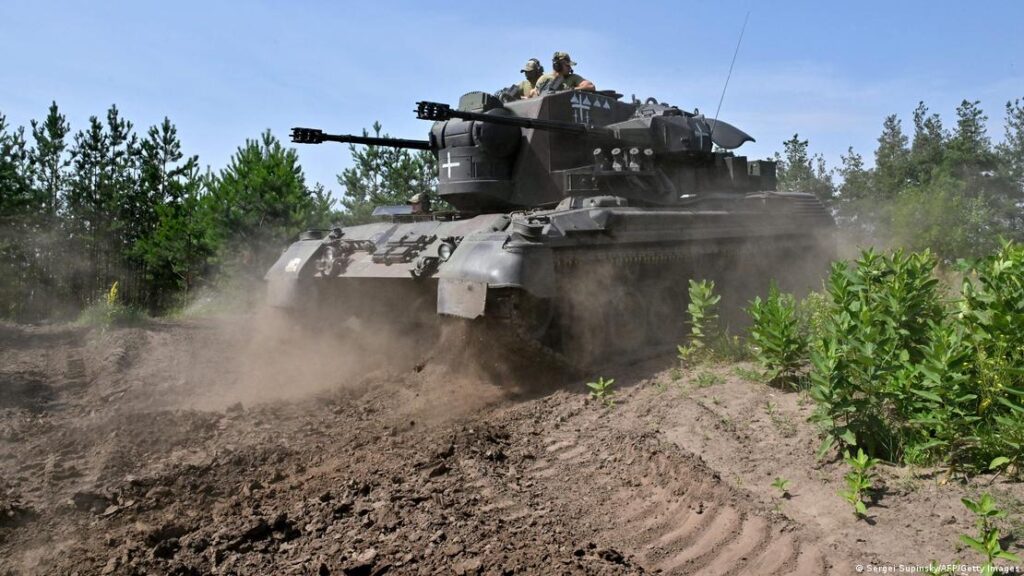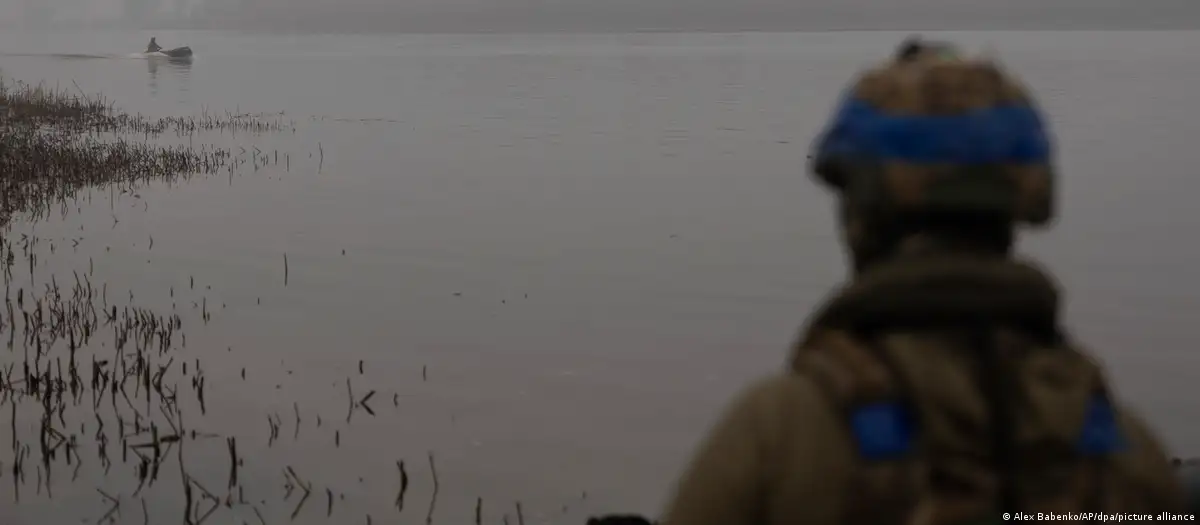Even without the “turnaround” expected by some allies, Ukrainian troops are in a better position than before the counter-offensive. Kiev is betting on flexibility and preparing for the cold season.
(DW) The fighting for the town of Avdiivka in eastern Ukraine is probably as fierce as that for the town of Bakhmut further north. The immediate events of the war cannot be verified independently. On some days, Ukraine even reports the deaths of between 800 and 1,000 Russian soldiers, but hides its own losses.
However, the sheer volume of military equipment destroyed by the Ukrainian defenders gives an idea of how violent Russia’s attacks are, while the world barely pays attention to this war.
Independent observers evaluate videos for this purpose. Swiss defense expert Marcus Keupp writes about it on X (formerly Twitter): “It looks like Russia is giving it its all and trying to advance” before the start of the mud season in the eastern sectors of the battlefront.
With the fall rains, the ground turns into an almost impassable swamp in many places. The situation makes it easier to hold on to what has been won so far.
Ukraine is taking this opportunity to “exhaust the resources of the Russians,” says security expert Christian Mölling of the German Society for International Politics (DGAP).
“The Russian commanders are conducting the offensive near Avdiivka in Soviet style, without taking into account their own materiel and troops. Entire columns of Russian armored personnel carriers, troop transports and battle tanks have already been lost to Ukrainian artillery fire and minefields,” adds Ukraine and Russia expert Nico Lange of the Munich Security Conference. He also points out that he is convinced that “a new phase of the war is just beginning” in Ukraine.
Moscow is playing for time
This new phase may seem more positive for Ukraine than many in the West believe. “By hitting Russian radars, anti-aircraft defenses and ships on the western side of Crimea, Ukraine was able, on its own, to clear the way for grain ships to leave Odessa, expanding its operational options,” says Lange.
For Sabine Fischer, Moscow is suffering from the isolation imposed by the West and has little political choice but to try to buy time. The Eastern Europe expert at the German Institute for International and Security Affairs (SWP) wrote in a recent essay on Russia that its “political leadership continues to believe that it can exhaust Ukraine militarily and undermine international support for Kiev”.
“Indeed, arms deliveries to the Ukrainian Army this year have brought success, although the breakthrough expected by many Western nations through the heavily mined Russian lines in the south of the country has not materialized,” Mölling ponders. “I never assumed that Ukraine would definitely have to reach its maximum goal,” the expert points out, adding that he also never assumed that the war would end this year.
“Ukraine has managed to make intelligent use of its military equipment and ammunition resources,” says Lange.
During a discussion on artificial intelligence (AI) at DW in Berlin, the head of the Bundeswehr’s Cyber Innovation Center, Sven Weizenegger, revealed what this means. He said that AI helps Ukraine make better leadership decisions, for example, to reduce “between 80% and 90%” the use of ammunition.
In addition, experts point out that, in general, Ukrainian soldiers show more “agility” on the front line than Russians. In the 18 months since Russia’s full-scale invasion began, Ukraine has learned to take advantage of its inferiority in terms of military equipment.
The Ukrainian military seems to be reacting flexibly. “While Moscow is sending soldiers to certain death in Avdiivka, the Ukrainian army is halting its counter-offensive on the southern front near Robotyne,” says Lange. “Ukraine is taking an operational pause in this sector of the front and is currently regrouping troops and resources, also out of caution, taking into account the current blockage in the US budget for further aid from Ukraine.”
Defensive preparation for winter

Winter is coming. Kiev apparently believes that Russia – as it did a year ago – will increasingly attack the energy infrastructure so that the people of Ukraine suffer in the cold. But Yurii Ihnat, spokesman for the Ukrainian Air Force, believes that this time the calculation will work in Ukraine’s favor.
“Germany in particular is increasing production of ammunition for both anti-aircraft weapons and air defense systems,” says Ihnat. The German Gepard anti-aircraft system, in particular, has been very successful in defending against Russian drone attacks. For a long time, ammunition for this system was in short supply.
In fact, German war equipment manufacturer Rheinmetall confirmed in a statement that since August ammunition for the Gepard has been produced exclusively for Ukraine on a newly created production line. The company, normally quite discreet, gave a German television crew exclusive access to its production area.
“We talked about how much ammunition is needed. How much is fired in a day? To get an idea of our demand,” said the Ukrainian ambassador to Germany, Oleksii Makeiev, about his talks with Rheinmetall. “But we also talked about the necessary technologies. For example, about how to determine the width of the minefields built by Russia. What is needed to clear the mines. And what’s also important: how the equipment can reach the battlefield.”
Weakening Russia as a strategy
Observers agree that this second winter of war in Ukraine will also be difficult for the country’s people. But there is also hope. Ukrainian pilots have progressed in their training on Western F-16 fighters.
After training on the flight simulator, the pilots would be trained on a real fighter. However, the Ukrainian Air Force is not expected to have its first F-16 squadron until the middle of the first half of next year. “This will mean a serious change,” says Ihnat, pointing out that this will force Russia to move its planes and helicopters further away from the front. “It wouldn’t even be necessary to get into a fierce battle,” emphasizes the Ukrainian Air Force spokesman.
“The premises of the Russian war against Ukraine have not changed,” Fischer wrote. “For promising negotiations, Ukraine must be significantly strengthened militarily and Russia must be significantly weakened.”
